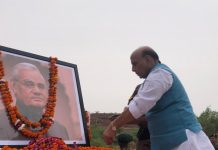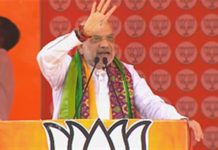
The administration of the union territory of Ladakh has announced that it would issue “Resident Certificates” only to holders of Permanent Resident Certificates as was the case before the withdrawal of J&K autonomy when Ladakh was a part of Jammu and Kashmir, reports RIYAZ WANI
An On September 4, the administration of the union territory of Ladakh announced that it would issue “Resident Certificates” only to holders of Permanent Resident Certificates as was the case before the withdrawal of J&K autonomy when Ladakh was a part of Jammu and Kashmir. This is unlike Jammu and Kashmir where the administration has allowed outsiders who have stayed in the region for a particular duration to apply for permanent residency rights and also buy land.
According to the Ladakh Resident Certificate Order 2021, “any person who possesses a Permanent Resident Certificate (PRC) issued by the competent authority in the districts of Leh and Kargil or belongs to a category of persons who would have been eligible to be issued PRC shall be eligible to receive the ‘Resident Certificate’.”
The order, according to an official spokesman, is “to temporarily define ‘Resident of Union Territory of Ladakh’ for the purpose of appointment to all the non-gazetted posts borne on the establishment of any department or service of administration of Ladakh”.
The Tehsildars have been made the authorised competent authority to issue the ‘Resident Certificate’. The rules are contrary to the Jammu and Kashmir Grant of Domicile Certificate (Procedure) Rules, 2020 issued on May 18, 2020. The law entitles to a domicile status anyone who has stayed in the region for fifteen years. The period is just ten years for central government officials and their children and seven years for students who have done high schooling in the region.
Under the revoked Article 370 that granted J&K its autonomy, the land and jobs in the region were strictly reserved for ‘permanent residents,’ a term that under the new law has been changed to domiciles, meaning anyone who has been a resident for 15 years, less so for the central government employees.
The law has already granted domicile status to three lakh West Pakistan Refugees in Jammu. These refugees had come to the region from Pakistan during Partition and the subsequent wars with the country, New Delhi is also wooing the major corporate houses and traders in the country to invest in Kashmir with an offer of 6000 acre land bank. However, so far, there has been little investment in Kashmir.
Recently in the run up to the second anniversary of the scrapping of Article 370, a 76-page booklet titled “Jammu and Kashmir marching to a new era” revealed that the administration had issued 41,05 lakh domicile certificates in J&K including 55,931 certificates to the West Pakistani refugees. 2754 certificates twere issued to the Valmikis and 789 to Gorkhas. They were not eligible for the certificate under Article 370.
The booklet also disclosed that 890 central laws have been made applicable to J&K, 205 J&K state laws have been repealed and 130 state laws have been modified and applied including the Big Landed Estates Abolition Act, a 1949 law that saw redistribution of 4.5 lakh acres of land among tenants and landless.
But in Ladakh, the administration has stayed short of disrupting the status quo. Retention of residency law was a longstanding demand of Ladakhis. Last year, Ladakhis formed the People’s Movement for Sixth Schedule (PMSSL), an amalgam of different political parties and socio-religious organizations started a campaign for protection of the land, jobs and the identity of Ladakh.
Ladakh has two districts Leh and Kargil. Total population of Ladakh, according to 2011 census is 2.74 lakh. While Leh with a population of 1,33,487 is Buddhist majority, Kargil with a population of 1,40,802 is Muslim majority
Recently, on the second anniversary of the revocation of Article 370 on August 5, there was no celebration in Ladakh. Rather, the political parties of its two districts which earlier held divergent views about the repeal of the special status came together to demand statehood.
However, there are remote chances that Ladakh will get statehood. But by barring outsiders from settling in Ladakh, the administration has shown it is sensitive to the demands of the people of the UT.
tehelkaletters@gmail.com













